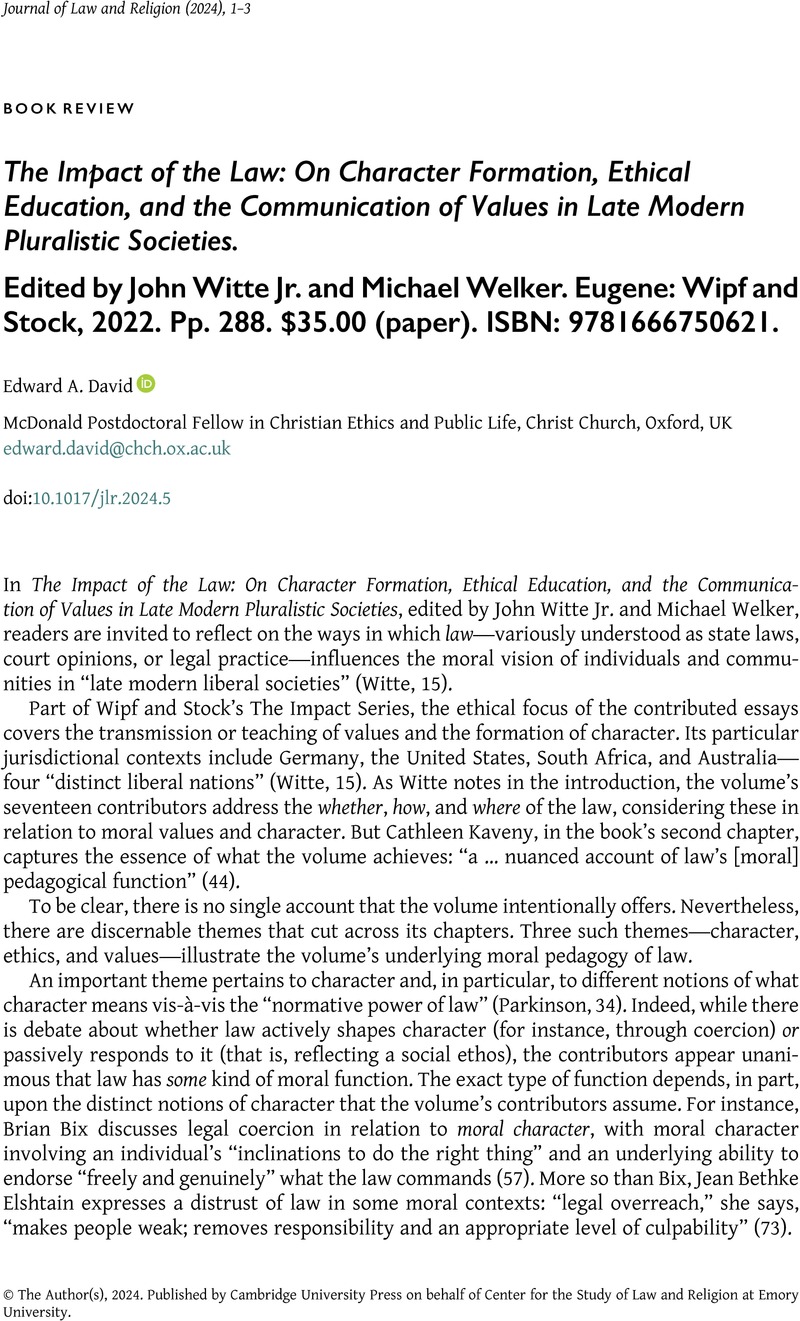No CrossRef data available.
Article contents
The Impact of the Law: On Character Formation, Ethical Education, and the Communication of Values in Late Modern Pluralistic Societies. Edited by John WitteJr . and Michael Welker. Eugene: Wipf and Stock, 2022. Pp. 288. $35.00 (paper). ISBN: 9781666750621.
Review products
The Impact of the Law: On Character Formation, Ethical Education, and the Communication of Values in Late Modern Pluralistic Societies. Edited by John WitteJr . and Michael Welker. Eugene: Wipf and Stock, 2022. Pp. 288. $35.00 (paper). ISBN: 9781666750621.
Published online by Cambridge University Press: 24 April 2024
Abstract
An abstract is not available for this content so a preview has been provided. Please use the Get access link above for information on how to access this content.

- Type
- Book Review
- Information
- Copyright
- © The Author(s), 2024. Published by Cambridge University Press on behalf of Center for the Study of Law and Religion at Emory University



